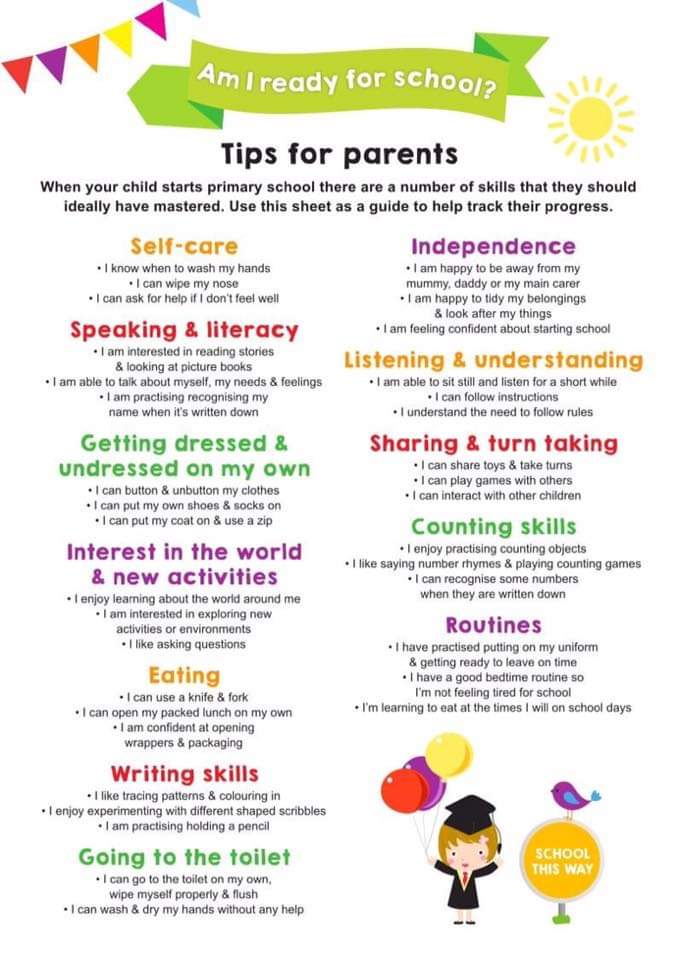Foundation Stage Transition - September 2021
Welcome to the Reception admissions page for children starting their learning journey at Hoyland Springwood in September 2022.
We are delighted that your child has been allocated a Foundation Stage place with us. Due to the current situation with COVID-19, our usual induction process is understandably in limbo. We are trying to find ways to ensure that your child has as smooth and positive a transition as possible despite the current restrictions. As we are unable to know how long these restrictions will remain in place for, we will be unable to give definite timescales or dates for the time being. However, our transition process is in the following four parts.
A meeting for parents. This usually happens in June. Sadly though, under current guidelines, this cannot go ahead currently. If this is still the case later in the year – we will look to still have this but in a virtual way. This may be a pre-recorded video for you to watch or an interactive discussion using Whatsapp. Below is a powerpoint of transition information that would be useful for you to read.
Stay and play sessions. Parents and pupils are usually invited to come into the reception classrooms in groups and spend some time playing in the space and getting to know the adults. These sessions usually happen in late June or early July. As a precaution though these are not possible this academic year. However, Mrs Brown will be making a visit to your home to meet you and your child during the week commencing Monday 5th July.
Starting school. In September, we are planning a three day transition period where children attend school for morning and lunchtime sessions, building up to full time by the end of the week. For most children, this will work well. We are happy to work with families and will be as flexible as families need to ensure that this transition into school is as smooth as possible.
Information evenings for parents. Once the children are in and settled, we usually run a series of informal evenings for parents where we address issues such as phonics etc. These happen from the end of September onward and are usually held early evening to allow as many parents to attend as possible. Again, should it not be possible by then for us to meet in person, we will hold virtual meetings and record things so that you are still informed.
At school we promote independence and it is a great help, particularly to the children's confidence if, by the time they start school, they are able to:
We are delighted that your child has been allocated a Foundation Stage place with us. Due to the current situation with COVID-19, our usual induction process is understandably in limbo. We are trying to find ways to ensure that your child has as smooth and positive a transition as possible despite the current restrictions. As we are unable to know how long these restrictions will remain in place for, we will be unable to give definite timescales or dates for the time being. However, our transition process is in the following four parts.
A meeting for parents. This usually happens in June. Sadly though, under current guidelines, this cannot go ahead currently. If this is still the case later in the year – we will look to still have this but in a virtual way. This may be a pre-recorded video for you to watch or an interactive discussion using Whatsapp. Below is a powerpoint of transition information that would be useful for you to read.
Stay and play sessions. Parents and pupils are usually invited to come into the reception classrooms in groups and spend some time playing in the space and getting to know the adults. These sessions usually happen in late June or early July. As a precaution though these are not possible this academic year. However, Mrs Brown will be making a visit to your home to meet you and your child during the week commencing Monday 5th July.
Starting school. In September, we are planning a three day transition period where children attend school for morning and lunchtime sessions, building up to full time by the end of the week. For most children, this will work well. We are happy to work with families and will be as flexible as families need to ensure that this transition into school is as smooth as possible.
Information evenings for parents. Once the children are in and settled, we usually run a series of informal evenings for parents where we address issues such as phonics etc. These happen from the end of September onward and are usually held early evening to allow as many parents to attend as possible. Again, should it not be possible by then for us to meet in person, we will hold virtual meetings and record things so that you are still informed.
At school we promote independence and it is a great help, particularly to the children's confidence if, by the time they start school, they are able to:
- Dress and undress themselves keeping their clothes together.
- Be responsible for their own belongings. You can support this by naming all items of clothing and possessions which come to school, enabling the children to identify their own things.
- Go to the toilet without assistance, washing their hands with soap.
- Eating healthy foods. We have 1 snack time during a school day for children in the EYFS, in addition to their lunch.
- Recognising and writing their own name.
Below is information for you to be aware of:
Meet The Class Teacher
Mrs Brown is the Foundation Stage Teacher.
Further information about the whole school team and what they look like is included in your welcome pack.
The Classroom and School Environment |
Entering the School |
|
|
| ||
|
Here is a video of the inside the shared areas of our wonderful school.
|
Here is a video to show the route to class currently due to COVID-19.
|
With COVID-19, our classroom layout has become very different and will ever change depending on current advice. We endeavour to have spaces as bright, useful and exciting as possible to encourage the characteristics of effective learning; playing and exploring, active learning, creating and thinking critically. We are very lucky at Hoyland Springwood to have beautiful and spacious grounds, our own secure forest and lots of opportunities to learn outside with a safe outside classroom space that is ever developing for outside learning.
Ways you can help your child to become school ready
Here are some ideas of activities and videos to watch that can be used to support their transition.
| starting-in-big-school-2020__1_.docx |
Other additional and useful reading
The importance of phonics
Early phonics teaching in pre-school, nursery and at the start of Reception focuses on developing children’s listening skills. Early years environments do a lot of aural work, training children in awareness of sounds. In early phonics, children are taught about:
Typical activities for teaching Phase 1 phonics include 'listening' walks, playing and identifying instruments, action songs, learning rhymes and playing games like I Spy.
This phase is intended to develop children’s listening, vocabulary and speaking skills.
This phase is really important and vital to your child's reading journey.
Children generally develop most of these skills naturally through their interactions with parents and caregivers both at home and in play-based nursery school programmes. Their reception year teacher will help them to continue developing these skills through age-appropriate play-based learning before introducing them to a formal reading programme.
Before beginning a formal synthetic phonics programme, the teacher will show children how to break words down into their individual sounds (segmenting) and how individual sounds are put together to form a word (blending).
Segmenting is taught by showing the pupils an object, saying its name, and then asking the pupils what sounds they hear in the name of the object. E.g. ‘This is a cat. What sound can you hear at the beginning of cat?’
Blending is taught by showing an object, saying the sounds in its name and then asking the pupils what the object is. E.g. ‘c-a-t says …...? What is it?’
Learning to read needs to be based on a solid foundation of general language skills. These develop when a child has plenty of opportunities for speaking and for hearing stories, songs and rhymes. It is also important for children to have fun so that they will develop a positive attitude towards learning.
- Environmental sounds
- Instrumental sounds
- Body percussion (e.g. clapping and stamping)
- Rhythm and rhyme
- Voice sounds
- Oral blending and segmenting (e.g. hearing that d-o-g makes ‘dog’)
Typical activities for teaching Phase 1 phonics include 'listening' walks, playing and identifying instruments, action songs, learning rhymes and playing games like I Spy.
This phase is intended to develop children’s listening, vocabulary and speaking skills.
This phase is really important and vital to your child's reading journey.
Children generally develop most of these skills naturally through their interactions with parents and caregivers both at home and in play-based nursery school programmes. Their reception year teacher will help them to continue developing these skills through age-appropriate play-based learning before introducing them to a formal reading programme.
Before beginning a formal synthetic phonics programme, the teacher will show children how to break words down into their individual sounds (segmenting) and how individual sounds are put together to form a word (blending).
Segmenting is taught by showing the pupils an object, saying its name, and then asking the pupils what sounds they hear in the name of the object. E.g. ‘This is a cat. What sound can you hear at the beginning of cat?’
Blending is taught by showing an object, saying the sounds in its name and then asking the pupils what the object is. E.g. ‘c-a-t says …...? What is it?’
Learning to read needs to be based on a solid foundation of general language skills. These develop when a child has plenty of opportunities for speaking and for hearing stories, songs and rhymes. It is also important for children to have fun so that they will develop a positive attitude towards learning.
PHASE 1 IDEAS AND ACTIVITIES:
| phase-1-phonics-for-parents-home-learning-ideas_secured-1.pdf |
| t-l-5629-rhyming-words-home-learning-activity-sheet.pdf |





